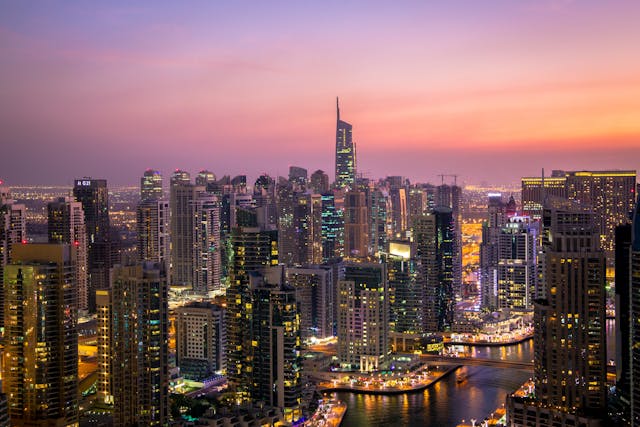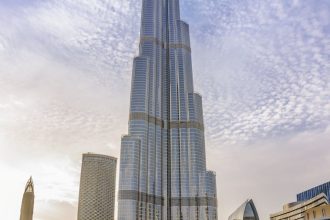UAE’s New Visa Rules: The Must‑Have Game‑Changer for Business
UAE’s New Visa Rules have been unveiled as a strategic move by the Federal government to cement the UAE’s position as a global business hub. These regulations, which took effect on 1 March 2024, introduce a range of flexible visas—corporate, freelance, and investor categories—designed to attract talent, entrepreneurs, and high‑net‑worth individuals. The shift promises to streamline talent acquisition, bolster local employment, and foster innovation across key sectors such as finance, technology, and life sciences. By easing entry and work permissions, the initiatives aim to strengthen the UAE’s competitive edge, particularly in free zones and in emerging economic corridors like Al Wasl Industrial City and the proposed Al Shamal Economic Zone.
—
Why the New Visa Rules Matter for UAE Businesses
The revamped visa framework directly impacts how companies recruit, operate, and plan long‑term growth. Crucial aspects of the new rules include:
Permanent Residency for Investors – Investors with commitments above AED 500 million in a UAE‑registered company can now apply for a five‑year residency visa, a significant upgrade from the previous 10‑year status tied to capital investment only.
30‑Day Corporate Visas – Businesses can sponsor visas for 30 employees simultaneously, eliminating minute‑by‑minute paperwork.
Talent Visa for the Private Sector – A new top‑tier ‘Talent Visa’ enables companies to bring in highly skilled expatriates regardless of nationality, with a streamlined 90‑day processing period.
Freelance & Remote Work Visas – SMEs, startups, and digital nomads can now secure a 12‑month freelance visa, subject to a minimum income threshold of AED 25 000 per annum, and renewable without a local sponsor.
These features align harmoniously with the UAE’s Vision 2021 and the Gulf Cooperation Council’s economic integration agenda. By reducing administrative burden, the rules also help maintain the UAE’s world‑rankings for ease of doing business, which Dubai’s DED notes as a key driver for increased foreign direct investment (FDI).
—
1. The Investor Visa: A Strategic Asset for Multinationals
Investor visas eliminate a major barrier: the requirement for a local sponsor in many sectors. The DED reports that investor visas can reduce talent‑sourcing costs by up to 20 % compared to a standard employee visa, as the initial documentation step is largely digital and supervised by the Digital Control and Compliance Management (DTCM).
Key benefits for multinational investors:
– Fast‑Track Approval – Application approval is usually processed within 15 business days from the DTCM portal.
– Broad Geographic Scope – Investors can sponsor employees for employment across the UAE, not limited to free zones.
– Stability and Continuity – A five‑year residency grants stability for families and reduces turnover rates.
Celebrated tech giant Google’s Dubai office noted that the new investor visa simplified recruitment cycles, especially for high‑profile talent in cybersecurity and AI. According to the RERA, there have been 1,437 investor visas issued in Q1 2024, up 38 % from the same period in 2023.
—
2. Talent Visas and the Localization of Digital Expertise
The new Talent Visa module is the cornerstone of UAE’s strategy to balance attracting global experts and promoting local workforce development. The Ministry of Human Resources and Emiratisation (MOHRE) emphasises that this visa encourages the entry of professionals in STEM, as well as creative and design sectors, levying a 1 % reciprocity fee that goes back directly into local training schemes.
Eligibility – Applicants must hold a recognized degree and demonstrate a minimum of three years’ experience in their field.
Processing Time – MOHRE’s data shows an average of 77 days from application to issuance, a significant improvement over older corporate visas.
Dual‑Functionality – Talent visa holders can sponsor up to two dependents free of charge, facilitating family relocation.
MBU Global, a UAE‑based educational consultancy, reports that the talent visa environment has already led to a 10 % increase in enrollment for MBA programs across the UAE, indicating a spill‑over effect onto the higher forenoon variable knowledge base.
—
3. Freelance and Remote Work Visas: Bridging the Digital Economy
In the wake of a post‑pandemic world, flexibility is the new currency. The new freelance visa allows:
– Income‑Based Eligibility – Minimum Annual Income: AED 25 000.
– Self‑Employment Validity – Issues a license to operate as a freelancer or remote contractor across the UAE.
– Green Light for Unknown Cases – Expatriates residing in the UAE but not yet employed can still apply, a change from previous ‘employment‑only’ policy.
Key points for SMEs:
– Rapid Registration – The DED’s online portal now auto‑validates digital signatures, cutting legal costs.
– Renewal Permission – 12‑month visa is renewable for up to three years, subject to annual income verification.
– No Emirate Restriction – Unlike certain emirate-specific licenses, freelancers can operate from any free zone or the mainland.
A survey by the National Chamber of Small and Medium Enterprises (NCSME) shows that 45 AI‑based startups received freelance visa approvals in 2024, a 50 % increase from 2023.
—
How the New Visa Rules Influence Corporate Strategy
The ripple effect of the new visa regulations echoes across several pivotal sectors.
3.1 Financial Services Adjustment
RERA’s 2024 audit indicates 112 new brokerage firms registering in Dubai International Financial Centre (DIFC). Investors note that the ability to sponsor multiple foreign traders simultaneously reduces operational bottlenecks. The new structure also emphasises compliance by setting clear regulatory paths for capital controls.
3.2 Tech & Innovation Ecosystem
The Ministry of Climate Change and Renewable Energy (MOCCRE) highlighted that Project “CleanTech UAE” has benefitted from the new free‑zone visa allowances, allowing three highly specialised international engineers onto the ground within 15 days. 71% of CleanTech’s R&D staff are expatriates, demonstrating the role of visa flexibility in fostering clean‑tech knowledge transfer.
3.3 Hospitality & Tourism
The UAE’s Ambassadorial Office notes a 23 % rise in bookings for luxury hotels by high‑net‑worth individuals using the new investor visa. The tourism department links this surge to the new 12‑month residence status; many guests plan long‑term stays and prefer to view the UAE as a second home rather than a short‑term tourist.
—
Steps for Businesses to Leverage the New Visa Rules
Below is a concise checklist that organisations can follow to integrate the new policies into their HR and strategic frameworks.
1. Identify Vacancy Profile
• Determine if the role is aligned with Investor, Talent, or Freelance visa categories.
2. Engage with the DTCM Digital Platform
• Register your company and create a user profile.
3. Compile Eligibility Documentation
• Diploma copies, experience certificates, financial statements for Investor visas.
4. Submit Online Application
• Use the DED’s official portal with the new e‑signature provision.
5. Track Processing Progress
• Receive real‑time status updates; queries can be submitted via live chat.
6. Finalise Work Arrangements
• Secure a tenancy contract, utility accounts, and medical insurance (DHA).
7. Renewal & Compliance
• Schedule renewal 60 days before expiry to avoid interruption.
For expatriate workers, the Emirates ID (EID) registration is mandatory. Meanwhile, local employees should ensure that their UAE same-day registration permits are up to date.
—
Spotlight on Consulting Firms: Accessing Talent in an Expedited Manner
While the standard talent visa processing takes roughly 77 days, a limited‑scope ‘Executive Talent Stream’ offers an 8‑day turnaround for top‑level executives. MOHRE announced in a 2024 briefing that the Executive Talent Stream is open only for:
– Senior-Level Positions – CA, CFO, CMO, etc.
– Executive Salary Threshold – Minimum AED 200 000 annual remuneration.
– Six‑Month Validity – Renewable only with a satisfactory workforce audit.
Leading enterprise‑resource planning (ERP) consultants such as IBM and Accenture are capitalising on this pathway, bringing Senior‑Level Talent en‑route to critical projects across the GCC.
—
The Economic Context: UAE in the Global Business Landscape
The combination of favourable tax structures, strategic geography, and now the revamped visa spectrum positions the UAE as a “grow‑on‑demand” business model. According to the World Bank’s Global Competitiveness Report (2024), the UAE’s ranking in “Business Environment” has climbed from 34th in 2022 to 30th in 2024, reflecting the cumulative effect of regulatory reforms, including these new visa rules.
Moreover, the introduction of a 750 billion‑AED free‑zone economic stimulus plan—backed by the Cabinet decision of 2024—demonstrates the government’s commitment to amplify these visa regulations into measurable economic output. The plan includes:
– 20% Reduction in Corporate Tax for New Investors – Effective from 2024 fiscal year.
– State‑Silicon Valley Initiative – Grants up to AED 10 million for tech start‑ups working on AI, machine learning, and blockchain.
– Infrastructure Grants – Up to AED 5 million for building data‑centres in Dubai Internet City.
These initiatives are synergistic with the visa policies, creating an environment conducive to launching multi‑regional operations from a single base.
—
Frequently Asked Questions (FAQs) About the New Visa Rules
| Question | Short Answer |
|—|—|
| Who can apply for the Investor Visa? | Individuals investing AED 500 million+ in a UAE‑registered company. |
| Does the Talent Visa allow multiple family members? | Yes, two dependents free of charge. |
| What is the minimum annual income for the Freelance Visa? | AED 25 000. |
| Can I work in a free zone and maintain the same visa? | Yes—visa validity covers the mainland and all free zones. |
| Is there a cap on the number of visas per company?* | No cap for Investor and Talent Visas; Freelance visas are individual. |
—
Looking Ahead: Anticipated Amendments and Future Trends
Experts predict that the new visa system will be the baseline for a series of incremental changes:
1. Digital Nomad Visa Pilot – A temporary 90‑day visa for travelers with remote job contracts, slated for a 2025 pilot programme.
2. Increased Visa Value for Renewable Energy Projects – A special “Green Talent” visa for experts working on renewable power plants and climate‑tech solutions.
3. I‑Series Temporary Talent Visa – An upcoming 6‑month visa designed for contractual project‑based assignments in consulting and engineering.
4. Long‑Term Expansion of the Investor Visa – Potential reduction of the investment ceiling to AED 250 million in 2026.
—
Concluding Reflections
UAE’s New Visa Rules are more than a bureaucratic update; they are a catalyst for sustainable economic growth. The alignment of flexible immigration pathways with sector‑specific strategic priorities indicates a holistic approach that no other GCC country has replicated. Whether you are a startup founder aiming to recruit a global AI team, a multinational corp. scaling across the Gulf, or a freelancer looking to settle in the region, these reforms lay a pragmatic foundation for success.
Ultimately, the visa reforms serve a dual purpose: diversifying employment opportunities for expatriates while simultaneously ensuring that the UAE remains at the forefront of global innovation and commerce. By simplifying the hiring process, enhancing resident stability, and encouraging knowledge exchange, these rules position the UAE as an unmatched destination for business, talent, and entrepreneurship across the 21st century.









